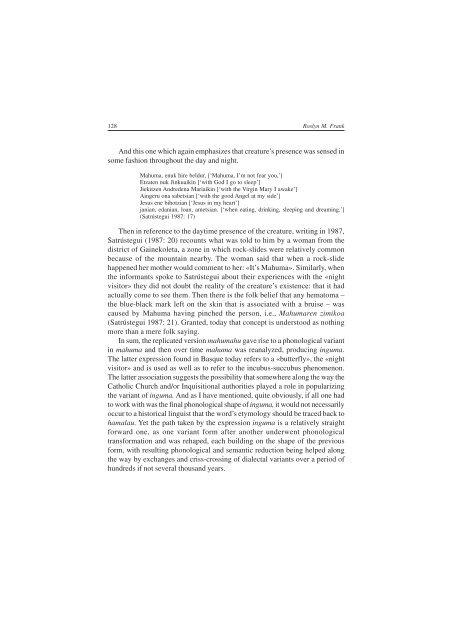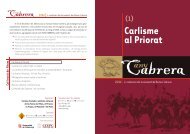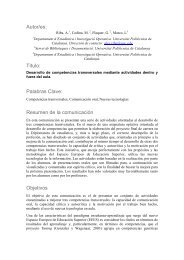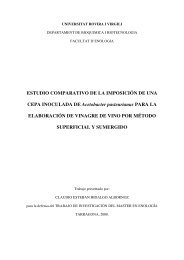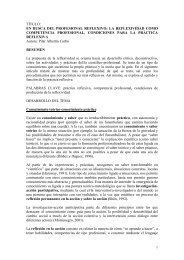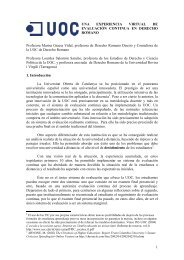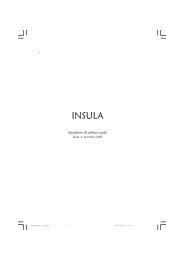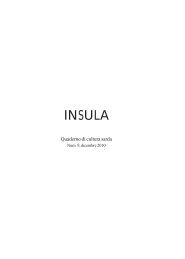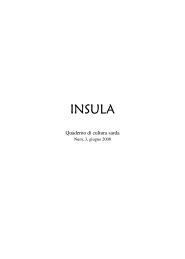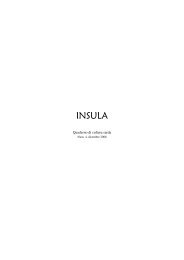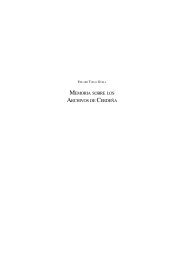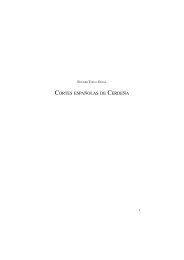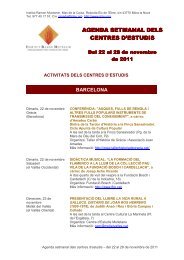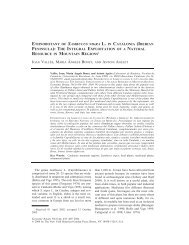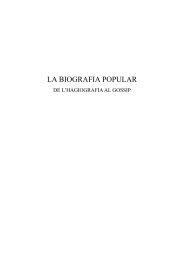Impaginato 5.p65 - Universitat Rovira i Virgili
Impaginato 5.p65 - Universitat Rovira i Virgili
Impaginato 5.p65 - Universitat Rovira i Virgili
Create successful ePaper yourself
Turn your PDF publications into a flip-book with our unique Google optimized e-Paper software.
128<br />
Roslyn M. Frank<br />
And this one which again emphasizes that creature’s presence was sensed in<br />
some fashion throughout the day and night.<br />
Mahuma, enuk hire beldur, [‘Mahuma, I’m not fear you,’]<br />
Etzaten nuk Jinkuaikin [‘with God I go to sleep’]<br />
Jiekitzen Andredena Mariaikin [‘with the Virgin Mary I awake’]<br />
Aingeru ona sabetsian [‘with the good Angel at my side’]<br />
Jesus ene bihotzian [‘Jesus in my heart’]<br />
janian, edanian, loan, ametsian. [‘when eating, drinking, sleeping and dreaming.’]<br />
(Satrústegui 1987: 17)<br />
Then in reference to the daytime presence of the creature, writing in 1987,<br />
Satrústegui (1987: 20) recounts what was told to him by a woman from the<br />
district of Gainekoleta, a zone in which rock-slides were relatively common<br />
because of the mountain nearby. The woman said that when a rock-slide<br />
happened her mother would comment to her: «It’s Mahuma». Similarly, when<br />
the informants spoke to Satrústegui about their experiences with the «night<br />
visitor» they did not doubt the reality of the creature’s existence: that it had<br />
actually come to see them. Then there is the folk belief that any hematoma –<br />
the blue-black mark left on the skin that is associated with a bruise – was<br />
caused by Mahuma having pinched the person, i.e., Mahumaren zimikoa<br />
(Satrústegui 1987: 21). Granted, today that concept is understood as nothing<br />
more than a mere folk saying.<br />
In sum, the replicated version mahumahu gave rise to a phonological variant<br />
in mahuma and then over time mahuma was reanalyzed, producing inguma.<br />
The latter expression found in Basque today refers to a «butterfly», the «night<br />
visitor» and is used as well as to refer to the incubus-succubus phenomenon.<br />
The latter association suggests the possibility that somewhere along the way the<br />
Catholic Church and/or Inquisitional authorities played a role in popularizing<br />
the variant of inguma. And as I have mentioned, quite obviously, if all one had<br />
to work with was the final phonological shape of inguma, it would not necessarily<br />
occur to a historical linguist that the word’s etymology should be traced back to<br />
hamalau. Yet the path taken by the expression inguma is a relatively straight<br />
forward one, as one variant form after another underwent phonological<br />
transformation and was rehaped, each building on the shape of the previous<br />
form, with resulting phonological and semantic reduction being helped along<br />
the way by exchanges and criss-crossing of dialectal variants over a period of<br />
hundreds if not several thousand years.


